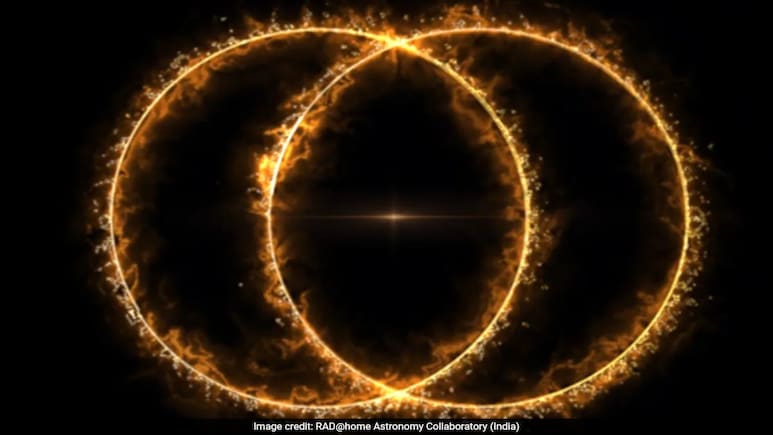
In a groundbreaking discovery, scientists found the most powerful and distant 'odd radio circle' (ORC) ever detected. The structure, named RAD J131346.9+500320, is also the only second ORC that has two rings. It is located 7.5 billion light-years from Earth, and spans 978,000 light-years across.
The ORC was spotted with the help of citizen scientists through the RAD@home Astronomy Collaboratory (India), and it challenges existing theories about galaxy evolution and black hole dynamics.
ORCs are faint, ring-shaped radio emissions surrounding galaxies. They are huge, apparently up to 50 times larger than our Milky Way galaxy. The odd radio circle is a relatively new cosmic phenomenon, as it was detected for the first time just six years ago in 2019 by Anna Kapinska of the National Radio Astronomy Observatory while perusing observations made by the Australian Square Kilometre Array Pathfinder (ASKAP).
"ORCSs are among the most bizarre and beautiful cosmic structures we've ever seen, and they may hold vital clues about how galaxies and black holes co-evolve, hand-in-hand," said Ananda Hota of the University of Mumbai, who led the research, in a statement.
As per the earlier research, the ORCs might be caused by shockwaves from merging supermassive black holes or galaxies. But the latest study, published in Monthly Notices of the Royal Astronomical Society, suggests that the rings of light may actually be linked to superwind outflows from spiral host radio galaxies.
"This work shows how professional astronomers and citizen scientists together can push the boundaries of scientific discovery," Dr Hota added.
Co-author Dr Pratik Dabhade, of the National Centre for Nuclear Research in Warsaw, Poland, said, "These discoveries show that ORCs and radio rings are not isolated curiosities - they are part of a broader family of exotic plasma structures shaped by black hole jets, winds, and their environments.
"The fact that citizen scientists uncovered them highlights the continued importance of human pattern recognition, even in the age of machine learning."
Track Latest News Live on NDTV.com and get news updates from India and around the world



